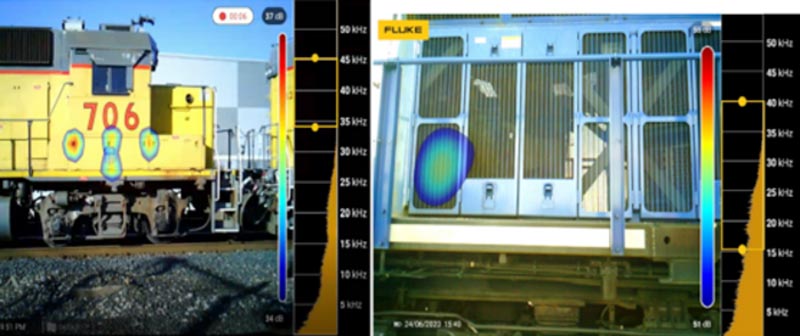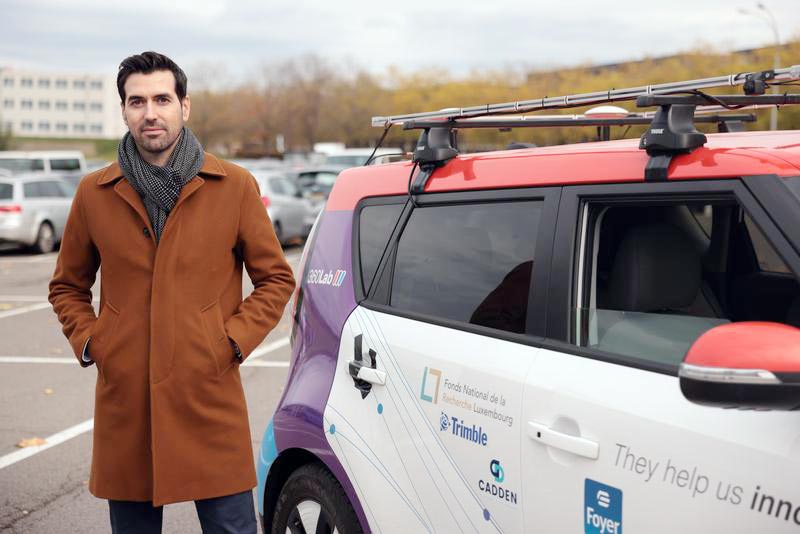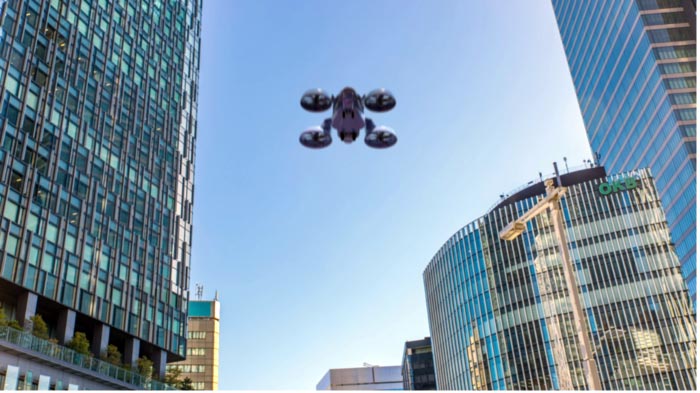
Urban Air Mobility is a forward-looking approach in the development of sustainable concepts for individual and freight transportation in highly congested metropolitan areas. Whether it’s logistics drones, air taxis, or rescue and surveillance systems – regardless of the application, the requirements for flight safety are particularly high. The research project ADAM (“Advanced Air Space Mapping”) aims to improve lower airspace situational awareness using new mapping methods, thereby increasing safety for autonomous flying in the city. The project’s kick-off event will…

Spinoff of KIT facilitates moves and replacements of production plants. Old production machinery has to be replaced due to changed requirements. However, high weight and limited space in plants often make it very difficult to assemble and disassemble big machines or to reposition them. Frequently, this is done by hand using heavy-duty rollers. FORMIC Transportsysteme, a spinoff of Karlsruhe Institute of Technology (KIT), has developed a semi-automatic transportation system for the replacement of production plants, which works like a swarm….

The air taxi market is almost ready for take off, with companies such as Boeing, Hyundai, Airbus and Toyota building fleets to have commuters flitting through the sky. Europe and the US have both drafted new rules to pave the way for air taxis to begin operations within the decade, with Australia’s Civil Aviation Safety Authority (CASA) to follow suit. Increasingly sophisticated studies over recent years, including a recent paper by RMIT University’s Uncrewed Aircraft Systems (UAS) Research Team, have…

NASA grant funds aeroacoustic research… As noise levels in urban spaces swell, a multi-university partnership seeks to turn down the volume on urban air mobility vehicles. Drone delivery is rapidly taking off in major cities, with rotor-powered rideshares not far behind. The convenience promised by electric vertical take-off and landing vehicles generates a substantial buzz – not just from excitement but from all the noise generated by rotors filling the sky. To address key challenges facing the future of air…

In order to advance the automation and digital networking of public transportation in Munich, 16 partners, including the University of Stuttgart, have joined forces in the “MINGA” research project. Their goal: On-demand services to complement the subway, buses, and trams, two virtually connected electric solo buses, “bus platoons” to replace the current diesel buses, and an automated driverless solo bus. In six work packages, the partners plan to address: the planning, financing, and regulatory aspects of automated public transport, the…

The effects of the ground on propeller noise have been measured experimentally for the very first time by researchers in the Aeroacoustics research team at the University of Bristol. In findings, published in the Journal of Sound and Vibration, the team found clear differences in the noise characteristics of propellers when over ground, known as ‘Ground Effect’, compared to when operated normally. They noted an overall noise increase when measuring at angles above the ground, with hydrodynamic and acoustic interaction…

SivaS research project: Driver assistance systems and automated driving functions have great potential to improve road safety. Already today, a large number of systems are available in modern motor vehicles that support drivers in driving continuously or in emergency situations. However, there are currently no harmonised European-wide regulations for assessing the safety of highly and fully automated driving functions in the type test, in the regular general inspection and during vehicle operation. On the basis of such an assessment, a…

A research team at Chalmers University of Technology is the first to demonstrate a unique method that reduces the aerodynamic resistance of ships by 7.5 per cent. This opens the way for large cargo ships borne across the oceans by wind alone, as wind-powered ships are more affected by aerodynamic drag than fossil-fueled ones. To hit international climate targets, the carbon emissions from shipping must be reduced by more than 50 per cent by 2050 compared to 2008 levels. As…

Traffic researchers from TU Dresden and Ruhr-University Bochum want to optimise the design, marking and signage of “turbo roundabouts”. Roundabouts have become an integral part of the German road network. In many places they increase traffic safety at junctions and promote traffic flow. Since the 1990s, this type of junction has become widespread throughout Germany. Thirty years later, a new type of roundabout is the focus of a research project that has become more widespread in recent years: “turbo roundabouts”….

New Fraunhofer safety technology reduces transportation accidents. Warehouses are home to heavy volumes of traffic. The numbers of industrial trucks (pallet trucks, forklift vehicles and the like) traversing their aisles are growing especially large – in facilities that are themselves increasing in size all the time. Under these conditions, accidents become an inevitability even if numerous safety measures are put in place. Now, optical sensors on industrial trucks might provide warehouse staff with better protection as they do their jobs….

Technology could help industry save millions in fuel consumption, reduce exhaust emissions. Southwest Research Institute (SwRI) has developed a proof-of-concept system to autonomously detect compressed air leaks on trains and relay the location of the leaks to mechanical personnel for repair. The automated system could reduce the time, costs and labor needed to find and repair air leaks, and it could lower the locomotive industry’s overall fuel consumption and exhaust emissions. Trains use compressed air for a variety of functions,…

The University of Luxembourg’s Interdisciplinary Centre for Security, Reliability and Trust (SnT) demonstrated its autonomous car in live traffic on Kirchberg today, Thursday 3 November 2022. This represents the first time a single-family autonomous car has joined the flow of traffic in Luxembourg with members of the public as passengers. This autonomous car is the test platform for navigation technologies and high definition (HD) maps being researched at SnT’s 360Lab. The demonstration is the culmination of five years of research work…

Researchers from Nagoya University and Keio University in Japan have estimated a person’s stress levels caused by the sound of a flying car passing overhead. The research was published in the Technical Journal of Advanced Mobility in September 2022. The drone market is booming, as several automobile companies and start-ups develop new personal aircraft. The long-awaited flying car, made famous in films like Blade Runner, may soon be a common sight in cities around the world. But while the automobile industry…

The approach to an airport runway is a real challenge for pilots: reducing speed, extending flaps and speed brakesand much more – all with as little noise and fuel consumption as possible. Moreover, air traffic control restricts the approach profile, and weather conditions are sometimes only vaguely known. In short, in addition to wind and other factors, the skills of the flight crew are a key factor in determining how well an approach meets all these requirements. To optimize this…

Making the mobility of the future safe. Practical and environmentally friendly, e-scooters offer great flexibility. It is no wonder that more and more people are using this form of transport. However, this rise in popularity has been accompanied by an increase in accidents resulting in severe injuries. The risk associated with these speedy runabouts is widely underestimated. In response to this, Fraunhofer researchers studied a typical accident scenario and the associated injuries as part of the HUMAD project. The experts…

… in Ottobrunn/Taufkirchen, Germany. The next milestone for the Technical University of Munich (TUM) Hyperloop research program has been achieved. The groundbreaking for the 24-meter-long TUM Hyperloop test segment took place on September 30, 2022 at the Ottobrunn/Taufkirchen site. The event was attended by Bavaria’s Minister President Dr. Markus Söder and the Bavarian Minister of Science and the Arts Markus Blume. The test segment is the first of its kind in Europe. Almost two years after the beginning of the…